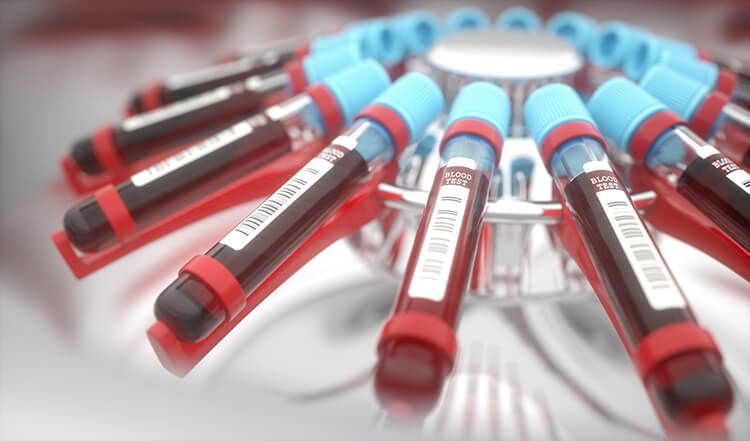
What is a prenatal check-up?
A prenatal check-up is a wide range of diagnostic tests recommended for the early diagnosis of diseases or developmental abnormalities in pregnancy.
The tests check the overall state of health of the mother-to-be to avoid complications during pregnancy or childbirth. Furthermore, they detect factors that may affect the development and health of the embryo.
Except for microbiological tests, the prenatal check-up also includes ultrasound examinations, usually performed by a gynecologist.
Some cases require specialized invasive examinations, such as trophoblast retrieval or amniocentesis to check for genetic and chromosomal abnormalities.
Prenatal check-up aims to ensure the health of the mother and the baby through the early diagnosis and treatment of any potential problems.
What microbiological tests does prenatal check-up for women include?
A woman who is planning to become pregnant or is in the first trimester of pregnancy is advised to do the following tests:
1. General blood count, iron levels, and ferritin levels
A check-up for the woman’s general state of health. It may reveal possible anemia or other conditions that need to be treated.
2. Urinalysis and urine culture
Screening for diseases or infections of the urinary system that can affect the health and development of the baby.
3. Hemoglobin electrophoresis and sickle cell test
Screening for the Mediterranean anemia stigma and the sickle cell disease. The tests are recommended to take place before the woman gets pregnant or immediately after confirmation of pregnancy.
4. Blood type and Rhesus test
Screening for the mother’s blood type and the Rhesus factor of both parents. The aim is to prevent any incompatibility in the blood of the mother and the embryo.
In case of incompatibility, indirect Coombs tests take place regularly and the mother receives special treatment during the pregnancy. Without timely treatment, there is a high risk of severe anemia and hemolytic jaundice of the baby.
5. Blood sugar check
The measurement of blood sugar levels at the beginning of pregnancy and a blood sugar curve in the second trimester constitute a pre-symptomatic screening for gestational diabetes. Gestational diabetes is a type of diabetes that can develop during pregnancy and cause complications.
6. TSH check
The measurement of thyroid-stimulating hormone (TSH) in the blood monitors the proper functioning of the thyroid gland. During pregnancy, the thyroid plays an important role, especially in the first 10-12 weeks of pregnancy.
Hypothyroidism is associated with an increased risk of miscarriage, while it has negative effects on the health of the embryo and mother.
7. Screening for STDs (Sexually Transmitted Diseases)
The screening for sexually transmitted diseases minimizes the risk of transmission to the embryo and ensures the mother’s protection.
It includes the following diagnostic tests:
- Australian antigen and hepatitis C antibodies: Test for possible hepatitis B and hepatitis C infection.
- VDRL reactive: Serological test for syphilis.
- HIV I and II: A blood test to detect the AIDS virus.
8. Rubella IgG and IgM antibodies
Screening for the existence of immunity against the rubella virus. In case of non-immunity, vaccination is recommended at least one month before the childbearing attempt begins.
In the first trimester of pregnancy, rubella can cause serious fetal abnormalities, such as deafness, heart damage, and intellectual disability.
9. Toxoplasma IgG & IgM Antibodies
Screening for toxoplasma infection. Toxoplasma is a parasite transmitted mainly by the feces of infected cats, raw meat, or unpasteurized dairy products.
Infection of the embryo in the first trimester can cause miscarriage, intellectual disability, and visual disorders.
10. CMV IgG & IgM antibodies
Screening for old or new cytomegalovirus infection. In the first trimester of pregnancy, cytomegalovirus infection can affect the brain, the auditory nerve and the liver, and cause intellectual disability and deafness.
11. Molecular control of cystic fibrosis
Cystic fibrosis is the most common inherited disease of white populations. If both parents are carriers of the mutation for this disease, there is a 25% chance that an infected child will be born.
Molecular testing is done by taking a blood sample or genetic material from inside the cheeks.
What does a prenatal check-up for men include?
In many cases, the father-to-be may also need to take a prenatal test.
The prenatal check-up for men may be associated with a pathological result in the partner’s examinations or with the existence of a history of inherited genetic diseases.
Finally, prenatal testing includes fertility testing for couples trying to conceive. In the case of men, this means tests such as:
- Sperm analysis – sperm diagram. This test checks the sperm volume, pH, sperm count, mobility, and morphology.
Prenatal check-up at PLUS microbiology laboratory
PLUS diagnostic center performs prenatal check-up tests before and during pregnancy.
The target is to provide the best possible care and support to future parents and to ensure the health of the mother and the baby.

Roche Elecsys 2010
Immunological-hormonal analyzer with high accuracy of results.

Roche Cobas 411
Immunological-hormonal analyzer with high accuracy of results.

Specialized Personnel
Well-trained medical staff with extensive experience in prenatal check-ups.

Fast Results
Delivery of results in a short time and in a flexible way.
Frequently Asked Questions
A prenatal check-up is divided into two general categories:
- Invasive prenatal testing
- Non-invasive prenatal testing
The non-invasive prenatal testing is painless and is performed by taking blood and urine. The whole procedure is completely safe for the mother and the embryo.
The invasive prenatal screening requires amniocentesis or trophoblast biopsy for the genetic testing of the embryo. In both tests, there is a small but measurable risk of miscarriage.
Beta-human chorionic gonadotropin is a hormone produced during pregnancy. It is detected by a blood test around 11 days after conception and by a urine test 12-14 days after conception.
The beta-human chorionic gonadotropin is used to confirm pregnancy when it is too early and the embryo is not visible on ultrasound. In addition, it is systematically checked at the beginning of pregnancy, as it is an indicator of the good course of pregnancy.
The pregnancy test measures the concentration of the beta-human chorionic gonadotropin to determine if the woman is pregnant.
There are two tests you can do to determine if you are pregnant:
- Urine test: This test is available on the market and detects the presence of the beta-human chorionic gonadotropin in the urine. It does not give an exact value, but a result based on the value of the hormone, so there is more room for error.
- Blood test: This test takes place at a microbiology laboratory. The test measures the exact value of the hormone and its changes, so its results are considered credible, provided that at least 11 days have passed after the potential conception day.